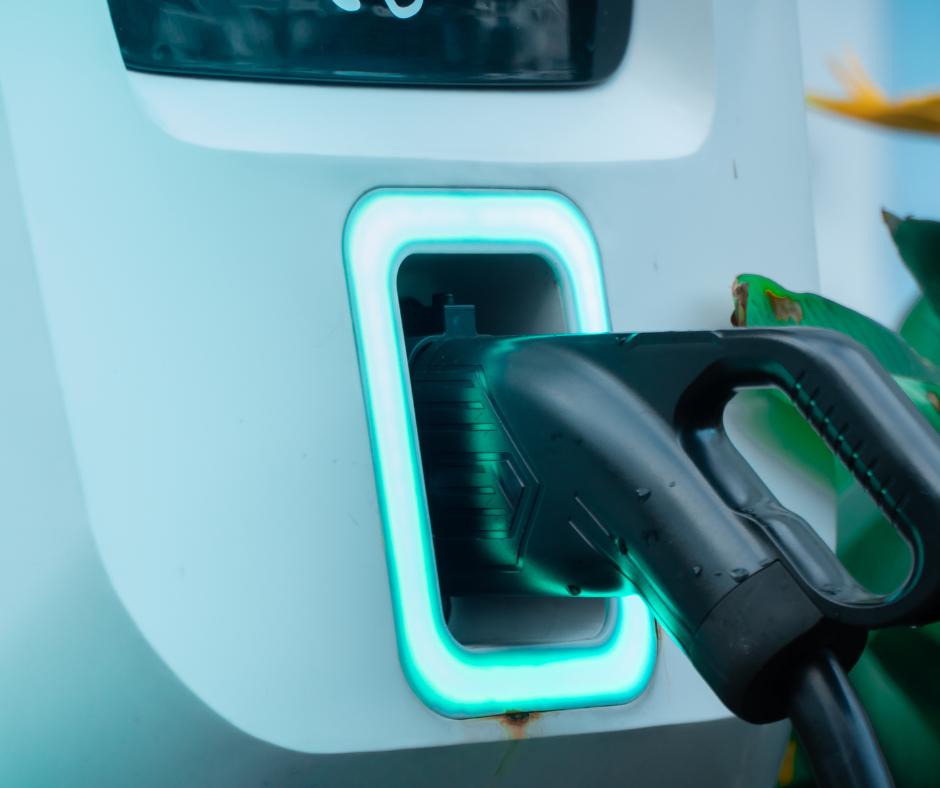How Power Companies are Supporting the Transition to Electric Vehicles
February 9, 2024
As consumers continue to adopt electric vehicles (EVs), power companies play a crucial role in supporting this shift. Power companies can support their customers by offering specific EV-focused rates, programs, and advisory services. I recently had the opportunity to interview Lincoln Wood, Electrification Policy Manager at Southern Company, and Stephanie Gossman, Electric Transportation Manager at Georgia Power Company. They stressed their companies’ common goal of making the consumers’ transition to EVs as seamless as possible so that they do not feel like they are giving up anything by switching to an EV. To make their point, Mr. Wood and Ms. Gossman emphasized how EVs have a lower total cost of operation than gasoline cars, are generally more convenient, promote local jobs, and are fun to drive, in addition to reducing vehicle emissions in the environment.
Rate Design
Many power companies, including Georgia Power, offer an EV-focused rate for customers. These rates typically charge customers less for using electricity during off-peak hours (typically at night) and more during on-peak hours (typically during the morning and evening). This rate almost always benefits EV drivers as most charging is done at night.
Surprisingly, EV-focused rates also benefit power companies. Power companies must always balance the amount of electricity produced with the demand for electricity. The typical demand curve for electricity is not uniform: for example, there is a big spike in the evening as people get home from work and turn on lights and appliances. Because of this phenomenon, power companies must invest in expensive infrastructure that is only used for a couple of hours each day to meet the spike in demand. By incentivizing EV drivers to not charge during peak demand, they flatten the spike in demand and can therefore reduce spending on infrastructure that is not utilized often.
Education/Programs
Power companies also support the shift to EVs by educating their customers on specific programs and incentives they can take advantage of. The conversation around EVs is typically very politicized. Instead of thinking about EVs in terms of political views, Mr. Wood stressed how Southern Company works to show their customers the tangible benefits of driving an EV. Their website has a handy calculator that allows consumers to estimate how much they can save by buying an EV. They also advise their customers on the various programs they can take advantage of. For example, their website lists all the federal incentives for purchasing an EV.
Power companies are also working with businesses and the government to help with the transition. Mr. Wood mentioned that Southern Company provided industry knowledge and expertise as the Infrastructure Investment and Jobs Act was being drafted. Part of this act established the National Electric Vehicle Infrastructure Program (NEVI), which established funding for EV chargers along travel corridors. Limited access to chargers is one common complaint among EV drivers. While 80% of charging is done at home, it is still crucial that the infrastructure exists to meet the other 20%. NEVI goes a long way in alleviating the lack of chargers. Georgia Power also incentivizes the installation of more chargers through its Make Ready Infrastructure Program. In this program, Georgia Power will install and maintain all the needed infrastructure behind the meter for public-facing EV chargers, eliminating a significant hurdle for businesses looking to add chargers.
Looking to the Future
While power companies are working hard to ensure a smooth transition for customers, there are still hurdles to be overcome. Switching to an EV is much easier for those in single-family homes. Apartment and condo dwellers are reliant on their landlords to install chargers or must use fast chargers instead. Fast charging is worse for battery health and is less convenient than charging at home. Unfortunately, there is not necessarily an easy solution to this problem. People who live in underserved communities also face issues with charging. Many of these areas are known as charging deserts since there are no accessible chargers, making it difficult for residents to adopt an EV. Some programs exist to alleviate this problem, but most are not economically sustainable. To better serve these customers, Ms. Gossman emphasized that Georgia Power engages with its community to learn from its customers and understand their problems. You can learn more about this topic at the 2024 UNC Cleantech Summit.
This article was written by Jackson Lefler, a UNC student and 2023-2024 intern with the Cleantech Corner initiative.
